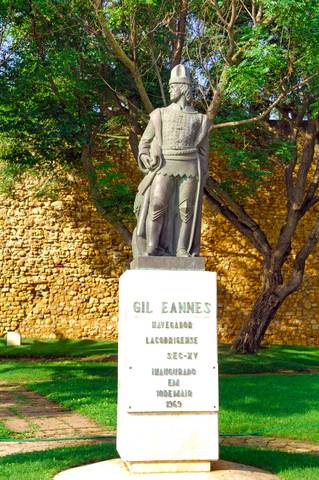|
algarve-history,Colourful History of Tavira,Cabanas,Loule and Lagosalgarve-history 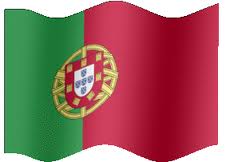
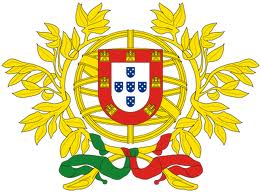
Please clickto return to Algarve information Please click.To return to east-west-algarve homepage
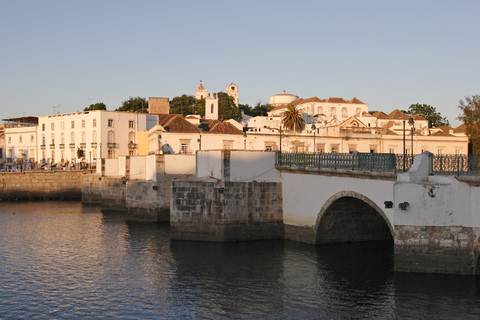
To start us off a little visual history.In the Graphic above we have a 2000 year old Roman Bridge in the city of Tavira.You can still walk over this bridge! Does that amaze you? It does me and the thought of those Romans wandering over that same bridge. You are taking the same steps as they did over 2000 years ago. Tavira is obviously a very historical city and there is much ancient architecture to view.Put it down as a must visit. Right the written history is down below.We will keep adding photographs of historical architecture to this History page.So please come back now and again.
THE ALGARVE HISTORY. Right gather around and we will take a brief tour of the history of the Algarve.I will keep it fairly brief and fast moving;so hopefully will not lose your attention halfway.No Yawning please! algarve-history We will start at the Bronze age,around 2000bc.It is thought the Algarve was populated mainly around Lagoa mid Algarve and Tavira in the east region.Not a lot more to say about this time other than they were nowhere near as primitive as many historians would have us believe.Funny how the authorities always want us to believe we descended from totally thick ignorant stock;all believing in sacrifice and eating our young.Isn't it? Anyway it seems by 1000bc the Phoenicians had moved in setting up tradeposts to trade with Europe.Great sailors were the Phoenicians and very advancedThey built one of the greatest fleets of all time.By 700bc it seems some celts had moved in alongside them.It appears they brought in Iron age technology. They were followed by the Carthaginians who were the forerunners of Tunisia.Then around 200bc the iniquitous Romans invaded defeating them in the Punic war.They settled in here for many centuries.They must have liked the weather!This is around the time when the Algarve became part of Lusitania,now known as Portugal! Around early 5th century Barbarians known as Visgoths marauded throughout Europe setting up their own kingdom.They were not Barbarians in the modern meaning,they were very civilised and expert warriors.Their kingdom seems to have survived until 714 ad when the Arabic Moors kicked their butts. The Moors were a prolific race setting up a very advanced civilisation.Great amounts of their Architecture survives throughout Portugal and Spain to this day.Under the Moors Portugal became a very important trading country and had a vast maritme society.The Moors were responsible for our modern day numerical system,Arabic!What an important development that was;simplyfing every form of civilisation.All around the Algarve today Mosques,Castles and Medinas are much in evidence and Moorish customs are still in evidence.The Moors called the region Al-Ghab.The name Algarve appears to have derived from this. Perhaps strangely;since the moors were invaders;the modern Portuguese work hard to keep the Arab architectural influence alive.It certainly does lend a picturesque view to Portuguese settlements.Portuguese towns and cities tend to be a lot more attractive ,certainly when compared to British onesalgarve-history shows that the Moors were expelled around 1250ad not sure who by or what happened then but by 1550 the whole of Portugal was ruled by Spain and this lasted untill 1640ad In the 15th century, Prince Henry the Navigator (see below for detail on Henry the Navigator) made his headquaters near Lagos and financed very many maritime expeditions which established Portugal as a colonial power. It was also from Lagos that Gil Eanes set sail in 1434 to become the first seafarer to round Cape Bojador in West Africa. These and other voyages of discovery brought Lagos fame and fortune. Trade flourished and Lagos became the capital of the province of Algarve in 1577 and remained so until after 1755, this being when the Lisbon earthquake,wreaked its havoc. The earthquake damaged many areas in the Algarve and an accompanying tsunami destroyed huge numbers of coastal fortresses, while coastal towns and villages were heavily damaged. Faro,being protected by the sandy banks of Ria Formosa lagoon remained largely unaffected by the disaster. In Lagos, stories tell of the the waves reaching the top of the city walls. For many Portuguese coastal regions, including the Algarve, the destructive effects of the tsunami were more disastrous than those of the earthquake itself. In 1807, while Junot lead the first Napoleonic invasion in the north of Portugal, the Algarve was occupied by Spanish troops under Manuel Godoy. Beginning in 1808, and after subsequent battles in numerous towns and villages, the region was the first to drive the Spanish out of algarve-history. The next important bit is when in 1807 a certain shorthouse called Napolean invaded and conquered all of Portugal and the Royal family fled for their lives to Brazil.They did return though when Napolean was defeated.Did you hear the one about a Portuguese King who planted so many almond trees throughout the Algarve that when they flowered everybody thought it was snowing! Somewhat sadly in 1910, when the Portuguese First Republic was conceived, the Kingdom of Portugal and the Algarve ceased to exist. Not really not much more worth reporting after that;so here ends this lesson,on algarve-history.Yawn!
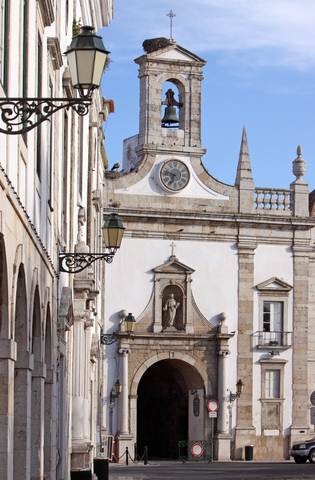
More algarve-history...The above graphic shows a medieval entrance way into the city of Faro in the Algarve.I think this definitely tells you that the Algarve region was not poor in those times.In fact Faro was ideally placed to benefit from the rich trading with Africa around those historical times.This trade made the region very wealthy.Africa and in particular Morocco is just a short journey over the mouth of the Mediterranean sea.Faro could not have been better placed during the days of the sailing ships. ============================================================
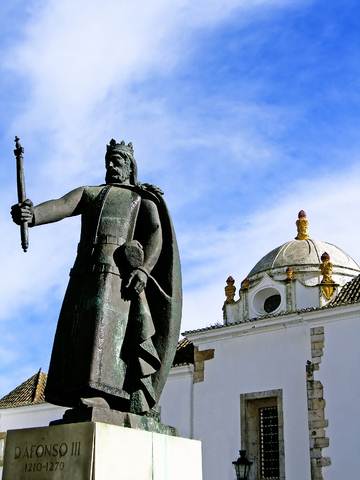
D ALFONSO iii King of Portugal and the saviour of the Algarve.Undoubtedly the most important monarch in algarve-historyIt was his actions which made sure the Algarve stayed Portuguese and not Castilian a kingdom of modern day Spain Possibly the most impotrtant and successfull Portuguese Monarchs ever was D Alfonso III who became king of Portugal in 1248.He was responsible for improving the tax system in Portugal and brought the middle classes to heel and created a more stable political situation for the country. It was because of this new stability and extra revenue that Alfonso was able to turn his attention to the Algarve,still in the hands of the Moors.Even in the 13th century the Algarve was very important mostly for its stategic position on the southern most edge of the Iberian Peninsula.With close access into the mediteranean and all the trading with the vast number of countries therein;it was no wonder the moors were hanging on to the Algarve and that Alfonso III was so determined to regain it for Portugal.Following his success against the Moors the euphoria of victory was short lived. Afonso III had to deal with the kingdom of Castile which laid claim to the regions of the Algarve.Unable to come to any agreement several wars ensued between the two kingdoms.Alfonso III was ultimately success full in winning the region for Portugal when in 1267 he signed the treaty of Baldajoz with the Castilian rulers.This dictated that the border between the Algarve and Castille would be the river Guidiana.This is how the geographical situation remains to present times. If Alfonso had not been so determined and successfull the history of Portugal could have been very much poorer without unfettered access to the African mainland and mediteranean countries. So it is no wonder then that Alfonso III is still kindly remembered in algarve-history by the Algarve people and that statues in his image are still prevalent in a very gratefull region! Henry The Navigator in algarve-history. One of the most important individuals during the days of the great Portuguese Empire.These were the days of small sailing ships exploring along the African coastline and gradually further afield.His navigators were responsible for the discovery of the Madeira islands and their colonisation by the Portuguese.Next came the Azores discovered in 1427 by one on Henry's navigators; a fascinating group of green lush Islands,still aligned with Portugal to this day. Henry the navigator was so prolific in the algarve-history of sailing and the main port his navigators used was Lagos in the Western part of the Algarve.This is where the small nimble ships would set sail from as they went out hopefull to add to Henry the Navigators discoveries and the wealth which came especially from African trading. Prince Henry the Navigator was a son of Portuguese King D.Joao I and Dona Filipa. Because Henry was so important to expanding Portuguese trade and therefore wealth;He was appointed Govenor of the influential and very rich Order of Christ in 1420.The Order of Christ was a new Order which took over from the Knights Templar after their sad demise.Henry would remain Govenor of this Order for his entire life and it supplied him with the funds needed for his further adventures. The centre of Henry the Navigator's operations was his Vila do Infante near Sagres.His expeditions funded by his new found wealth sailed from the port of Lagos,using very small ships known as Caravel's using sails borrowed from Arab boats;making them very maneuverable for sailing down the erratic coastline of Mauretania. By 1434 the first European Gil Eanes passed Cape Bojador during one of Henry's expeditions and by 1460 the Portuguese sailors had explored the African coastline as far as what is known today as Siera Leone.African trade cemented Henry's greatness in Portuguese and algarve-history.
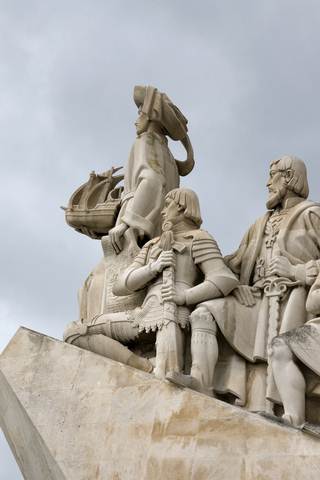
The picture to the right shows Henry the Navigator appropriately looking out to sea.Looking over his beloved Atlantic Ocean on the "coast of light;towards the African shores where his fame and real wealth was made.In the picture we see two others but the actual monument has about six more historical figures behind them. Since all the characters from history are behind Henry the Navigator it really demonstrates how important the sea and sailing ships were to Portugal and the Algarve.The whole of Portugal in the past relied on their heroes down in the Algarve to supply their wealth and high living standards in past centuries.. Skip on to the 20th century if not a little before and we find Portugal has become a poor country.Since they did have lots of ships and wealth in the past;what on earth happened to lose it all.Why did Portugal not enter the modern world building on its previous wealth. I have heard with my own ears the people of Portugal say "when we realised we were not going to be powerfull and rich in todays world.We decided to get our greatness from Football".Oh Dear!!! that has not quite worked out then has it.Mind you to squander past wealth and power has happened in many other nations,has it not.Even as recently as the UK and North Sea oil.Where did the enormous amounts of money go from that lucrative business.It was certainly not invested in the future of the United Kingdom. ===============
Gil Eanes in the illustration to your left.It is nice to see that a man of his undoubted calibre is remembered by his own statue.The Earl of Essex and algarve-history?!!
===================== The Earl of Essex and algarve-history?!! What on earth has the Earl of Essex got to do with the history of the Algarve.Quite a lot actually;he was a bit of an adventurer and sailor it seems.Else how could he have turned up in the region in the times of wooden sailing ships.Faro seems to have been his target. Faro is tacked onto the end of the wildlife park of the Ria Formosa and all its benefits to past civilisations because of natural food resources on the land and sea.The Ria Formosa lagoon attracted humans from the Palaeolithic peiod untill today. During this time an important settlement known as Ossonoba was formed; which was still in use during the period of Roman conquest and was later to become FaroWith the new conquerors the Arab Moors rule in the 8th century Ossonoba retained its status as the most important town in the the Iberian Peninsula. Under Christian rule it became Santa Maria but this was replaced by the name Harune. The Moors were defeated by the the Portuguese King Afonso III; whom we have already met; during the 13th century. With the decline of the importance of the city of Silves, Faro took over as the capital for the Algarve region. Faro was granted the privilege of being a city in 1540 by the Christians, and in 1585 was honoured with the seat of the bishop; transferred from Silves . Now we see the arrival of the war mongerer the Earl of Essex who ransacked the town in 1596 thus stamping his name in algarve-history and seizing the Bishop of Faro’s library. These books were later donated to the University of Oxford. After the disastrous earthquake of 1755 the governor moved from the city of Lagos to Faro which had suffered much less damage due to the protection of the Ria Formosa.So once more to become the capital of the kingdom of the Algarve. Stay in one of our apartments in one of the most historical areas of the Algarve.Stay in The Tavira area,one of the original settlements by Prehistoric man.Follow the links above and below.Great area to study algarve-history A Little More algarve-history algarve-history came under the unwelcome attentions of King Philip II of Spain when in 1580 he claimed the Portuguese throne and united the Spanish and Portuguese Kingdoms.Of course this was the time of great friction and mighty wars and sea battles between Spain and England. The association with the Spanish led to severe raids on the Algarve from Sir Francis Drake in 1587, during which Henry’s School of Navigation in Sagres was destroyed. Spanish rule was brought to an abrupt end when Portuguese armies restored Portugals sovereinity and independence in 1640. We have already seen how Portugal Portugal or the Algarve. In 1755 Portugal was hit by an earthquake when Lisbon was destroyed and much of the Algarve was devastated.Bad times we know continued thanks to the frenchshort-house Napoleon Boneparte, but was forced to withdraw thanks to British troops helping Portugal out in the Peninsula War,a bitter campaign of nearly four years from 1808 to 1811. Portugal and algarve-history was to remain free from further foreign attacks.However there was plenty of internal conflict in Portugal leading to the assassination of King Carlos I. Then King Manuel II was forced to abdicate in 1910 during the Republican Revolution, which bought ruination and the end to the Portuguese monarchy. Even as recently as April 1974 important historic conflict for Portugal,was to errupt when a group of radical army officers carried out a bloodless coup, called the ‘Carnation Revolution’ because soldiers carried flowers in their rifle barrels. This bloodless revolution brought an end to 50 years of hated dictatorship and created the birth of Portuguese democratic constitution. This in turn led to a Socialist party victory and the forming of a new government led by Prime Minister Mário Soares.This is commemorated each year on April 25th,which is now a major holiday in Portugal called 'Freedom Day'. In 1986 Portugal joined the European Union ) and Mário Soares became the first civilian President of Portugal. Soares held on to the presidency for around ten years untill he retired in 1996.The next President of Portugal was to be Aníbal Cavaco Silva winning the presidential poll in January 2006. He was the first centre-right President since the coup of 1974. ALGARVE STAY IN LUXURY AND STYLE.Near Tavira,Cabanas and the Spanish border.
|





